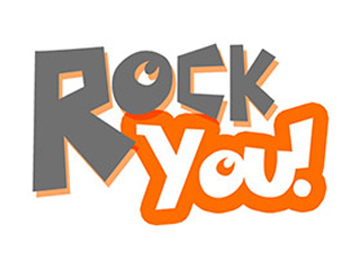坚守保守路线,RockYou与Slide社交游戏难获突破
Zynga和Playdom已逐渐成为家户喻晓的品牌,他们的一些竞争对手在社交游戏领域正日益失势,比如说RockYou和Slide这两家公司。
在2007年Facebook向它开放API之前,RockYou这家应用开发商的运营情况还比较可观。该公司刚起步时推出的照片分享应用一度大受欢迎,另外它还打造了一个社交网站广告平台,提供跨平台视频传播服务。在2010年5月,RockYou的主要社交网站用户已将近2.8亿人,同时还向社交游戏开发商推出了一些虚拟货币解决方案。
据游戏邦了解,RockYou从去年4月份开始进军游戏发行领域,代理中国社交游戏在全球的发行业务。该公司既当开发商又是服务供应商的这种双重角色在业内实为罕见,与6 Waves等仅专注于Facebook游戏发行渠道的公司所走的单一路线截然不同。
RockYou的广告平台主要作用是帮助社交游戏聚集更多人气,它的发行渠道和营收解决方案确实可以为自主游戏开发业务创造更多资源,但这真的是一个正确的选择吗?
很显然,RockYou的广告平台远比游戏业务更容易吸金,这一点很可能就是导致他们不思进取的原因之一,只能眼睁睁地看着Zynga等其他专注于社交游戏开发的公司成为这一行的领军力量。RockYou确实也推出了一款RPG游戏、一款宠物游戏和一款扑克游戏,但除了《ZooWorld》,没有一款游戏称得上是“成功”的作品。
游戏邦认为,RockYou在社交游戏开发上处于下风,并不是因为他们很晚才进军这一领域。Zynga和Playdom之所以能大肆招揽顶尖人才,就是因为他们收益巨大,而且风险资金也很充裕,足够他们建立一个精英管理团队,面向市场推出具有旺盛生命力的游戏。
Slide的起步与RockYou类似,也曾面向Facebook推出强大的应用产品,尤其擅长病毒式营销活动,但最终还是因为不够具有黏性而败下阵来。Slide在2010年还是推出了一些自主开发的游戏,只是这些游戏因为市场反应平淡,发行后只能陷入沉寂。
有人认为,Slide和RockYou会在社交游戏领域栽跟头,原因是他们本身就缺乏像Playfish一样丰富的游戏产品开发经验,而且错过了2008年的游戏克隆潮。当时《Mob Wars》这款游戏几乎每天都能创收1万至2万美元,《Friends for Sale》、《 Texas Hold‘em》则开创了西方游戏市场虚拟商品交易的先河。
Slide和RockYou不采纳游戏行业的克隆模式,有可能是为了回避一些潜在的法律风险,当时Zynga因为侵犯《Mob Wars》的游戏知识产权而一度处于风口浪尖上,Slide和RockYou在2008年都曾因虚拟商品业务募集到大量的资金,对投资者来说,他们十分不愿意这两家公司没什么游戏开发经验的公司去冒这种风险。
游戏邦还认为,Slide无法在社交游戏领域做出成绩的原因有二:
*无法准确判断市场规模和业务发展的持续性;
*产品缺乏黏性
RockYou和Slide现在的运营情况还算良好.Slide被谷歌收购后可能更有助于拓展社交产品业务,RockYou的定位则不甚明朗,该公司最近调整业务方向,而且还裁掉了大量的员工。之前还有传闻称RockYou的前CEO兰斯·德田(Lance Tokuda)有意离开公司,但事实证明这是个假消息。RockYou在社交和手机游戏领域应该还可以走得更远,只是我们仍然无法判断,它这种游戏开发商、技术服务供应商的双重身份究竟能否突破这种困境。(本文为游戏邦/gamerboom.com编译,转载请注明来源:游戏邦)
How RockYou and Slide Missed The Social Gaming Wild West
While Zynga and Playdom slowly became ubiquitous house hold names, their lesser known competitors slowly fell from grace in the world of social gaming. As the world sets its gaze upon a burgeoning industry, let’s take a look back at how RockYou! and Slide missed the boat. More after the jump.
RockYou! was around well before Facebook opened its API in 2007. The app developer quickly gained traction in what seemed to be the wild west of apps, starting with photo-sharing apps. RockYou’s reach allowed them to simultaneously be an ad network that includes cross-platform video distribution targeting multiple social networks. In May of 2010 RockYou was reaching roughly 280M people across its major social networks and launched services to help developers monetize their social games with virtual currency solutions.
By April last year, however, RockYou had already started delving into the publisher model, licensing Chinese social games and publishing them around the world. This dual approach of being both a developer and a service provider was unique to RockYou, compared with 6 Waves that was one of the original publishers on Facebook focusing on distribution.
RockYou’s insight as an ad network driving installs saw that the demand for social game developers was surging. RockYou’s position as both a publisher and monetization platform enticed them to put more resources in self game development. But was this the right decision?
It was apparent that getting advertising fees was more lucrative for them at the time than being a gaming company, causing them to push their efforts back while Zynga and others continued to take the lead. RockYou did come out with an RPG game, a Pet game and a Poker game, but none were ‘successes’ until ZooWorld.
The delay in execution wasn’t the only reason for RockYou’s slow penetration into social game development. Zynga and Playdom had been aggressive in hiring top talent due to large revenues and and venture financing that gave them enough capital to build a strong management team that knew how to create games that retain players for the long term.
Slide had a similar start – creating great applications on Facebook that were stellar in virility and distribution but eventually failed in engagement. Although Slide’s journey has been a bit mysterious, they did release some games in 2010 only to throw them in the deadpool because they weren’t ‘performing’ as well.
According to Adam Gries, Slide and RockYou’s downfall was their lack of pursuing an aggressive cloning strategy in 2008 as they evidently lacked game product experience that companies like Playfish possessed. Mob Wars at the time was generating roughly ~10 to 20k a day, and games like Friends for Sale, Texas Hold ‘em and (fluff)friends were validating the virtual goods monetization model in the west.
Slide and RockYou may have avoided this cloning strategy due to potential legal risks, especially at a time Zynga was facing fire because of IP infringement allegations from Mob Wars’ creator. Since both companies raised large rounds of capital (Slide in January of 2008 and RockYou and June of 2008) prior to the validation of virtual goods, investors could have put pressure to prevent the companies from pivoting to social game development, especially as they did not have the game product experience.
Adam Gries also cites the following for Slide’s journey away from social game success:
•poor estimation of market size and sustainability
•product inflexibility (quest for massive reach circumvented ability to develop engaging products)
Both RockYou and Slide seem to be all right now, with the latter company selling to Google to help drive its social product strategy. RockYou’s situation remains nebulous as it attempts to reinvent itself and bounce back from substantial layoffs. Rumors surfaced last month about Lance Tokuda, RockYou’s former CEO, parting ways with the company – but turned out to be false. RockYou could very well have a substantial future in social and mobile games but its unclear whether it will push the envelope as a game developers or solution/service provider.(source:socialtimes)








































 闽公网安备35020302001549号
闽公网安备35020302001549号